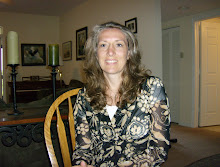 Life Without Bread Life Without Bread: How a Low-Carbohydrate Diet Can Save Your Life How a Low-Carbohydrate Diet Can Save Your Life by Wolfgang Lutz
Life Without Bread Life Without Bread: How a Low-Carbohydrate Diet Can Save Your Life How a Low-Carbohydrate Diet Can Save Your Life by Wolfgang LutzMy rating: 4 of 5 stars
Maybe 4 stars is a little generous, but this book did help round out some understanding that I needed. I first read "Breaking the Vicious Cycle: Intestinal Health Through Diet." "Life Without Bread" was also recommended by a friend. It has some interesting information on the many health benefits of a low carb diet. It also has a guide in the appendix which will help you determine your total carbohydrate intake.
I do not follow health fads, so it took a bit of convincing for me to change my mindset on what I felt was a potentially dangerous diet that many people used to lose weight. I am following a similar diet to help with ulcerative colitis, and it definitely does help. I don't have a grain allergy, and I don't have celiac disease. I also have never noticed any negative physical symptoms after eating bread. But after following a limited carb diet for over a month I feel much better (I actually started feeling better almost immediately).
The authors recommend 6 bread units per day (or 72 grams total utilizable carbs). This is pretty limited carbs, but technically would allow bread and other starches, fruits, vegetables, and sugars, as long as it is within the allowed amount. The diet I follow is slightly different in that it doesn't allow any grains, sugar, starch, or liquid milk. It does allow other carbs, such as vegetables and fruit, honey, etc. My diet doesn't specifically limit the grams, but suggests a healthy, balanced variety of foods. I have appreciated reading "Life Without Bread" because it introduced the idea of how important it is to limit the amount of carbs. I think both aspects are really important to be successful in healing intestinal disease, if that's your goal.
One complaint I have of the book is the emphasis on evolution, and the authors' attempt to tie that in with how well we digest grains, etc. I don't believe we descended from apes, therefore the authors lost some credibility with me.
I did appreciate the authors' review of many studies, and their explanation of how these have sometimes been used to mislead the public regarding health advice, such as doctors recommending a low-fat diet for someone who suffers from heart disease. I learned that the heart functions almost exclusively through the nutrient of fat, and the importance of animal fat in our diet. I've always been sceptical of foods with "fake" fat and "fake" sugar. I've also never bought into the "dangers" of eggs, butter, and other foods that are natural. So I enjoyed feeling validated in some things that I have always believed.
I admire those who are willing to go against conventional beliefs despite the harm that often comes to their professional reputation among those in the mainstream. There is a lot of good health and nutritional knowledge to be gained if you go to the right sources, and do some thinking for yourself. The best advice is not always the most convenient to follow. And just because we see news headlines making health claims, it does not mean that they are true. No big surprise there.
View all my reviews

